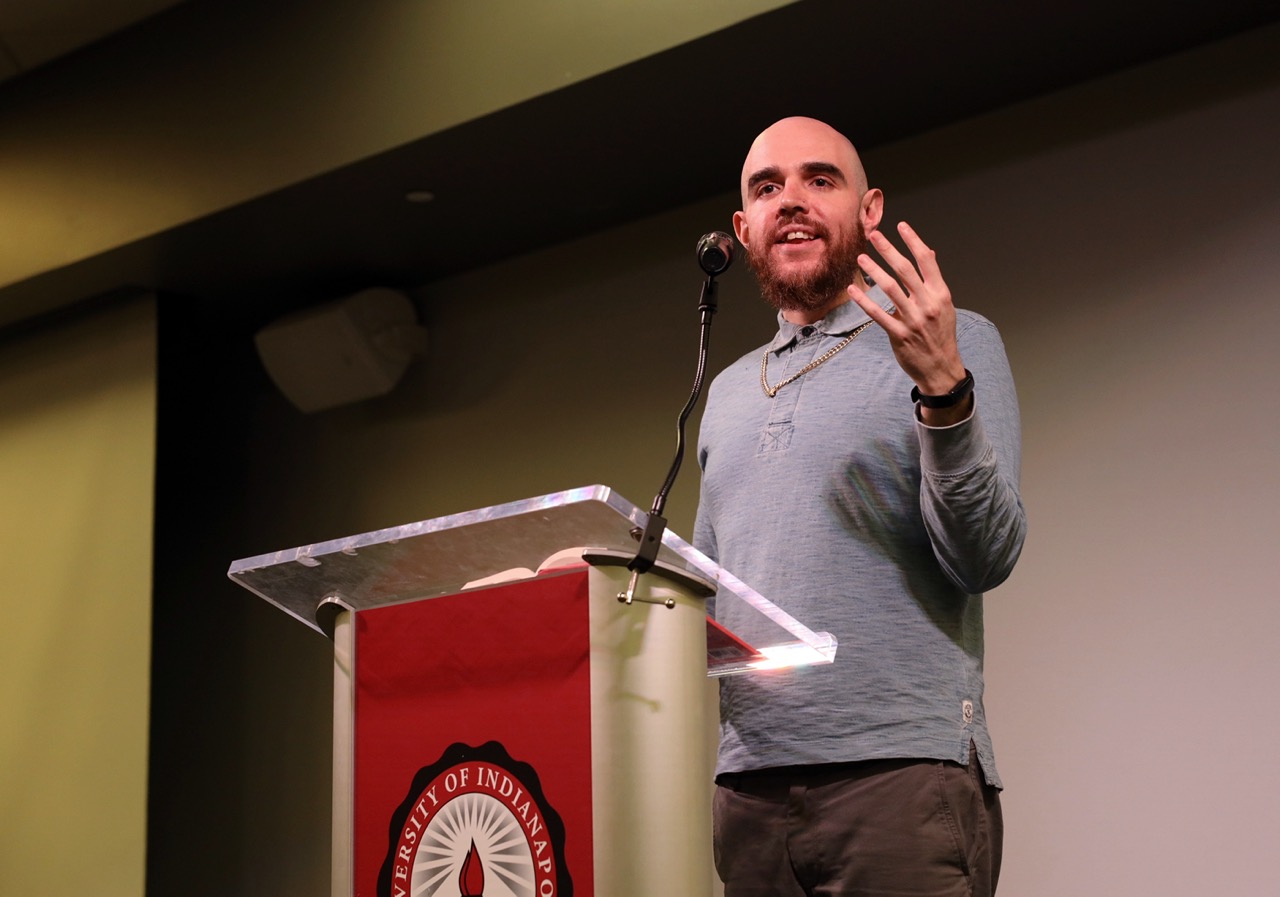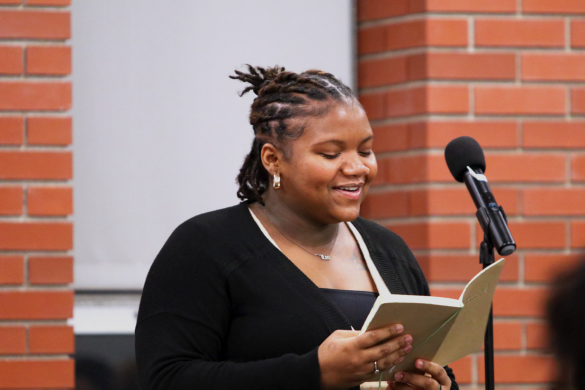Poet and Author José Olivarez spoke to the University of Indianapolis community about his life from growing up the son of immigrants, to attending Harvard, to becoming a published author as part of the Kellogg Writers Series. Olivarez gave the lecture on March 26 and read poems from his two published poetry collections “Citizen Illegal” and “Promises of Gold.”
Junior Spanish language education major and President of the Student Latinx Organisation at UIndy (SOL) Francisco Gomez was invited to take part in a Q&A with Olivarez and a smaller group of students before the public lecture. Gomez said that Olivarez’s work focuses on a wide variety of themes, including the experience of first-generation Mexican Americans along with more universal themes such as culture and friendship.
“… He also writes a lot about the experience of capitalism, the experience of his culture, the experience of writing friendship into his poetry,” Gomez said. “That kind of poetry is not really accessible to many individuals who grew up like he did, who grew up in schools in which the majority the population were not white.”
Throughout the reading, Olivarez touched on the importance class has played in his life, coming from a lower-income family to attend Harvard and later in his career as an author and poet.

“And then I got to Harvard and thought that should make things easier. And instead, I was in these social science classes… We would be in small group discussions and they’d be discussing the pros and cons of food stamps as an economics program,” Olivarez said. “And they were talking about it theoretically, right? They weren’t able to have that distance. And I was someone whose family had been on food stamps. So … There is no distance for me, I can’t separate it.”
According to Gomez, as students of color are already attending a predominantly white university in a predominantly white school, a lot of the literature out there focuses heavily on common experiences that are perhaps not always applicable to minority students. Gomez said that in his Q&A with Olivarez, he brought up the question of students of color pursuing a more creative profession.
“The idea of more creative professions and outlets are often seen as just hobbies they’d never really taken seriously,” Gomez said. “And that is a major thing because a lot of times we are told that like being a writer, being a film producer or being a filmmaker. Any of these creative outlets should just stay hobbies and you should get a quote-unquote ‘real job,’” he said.
In his lecture, Olivarez likened his poetry writing and crafting to a form of therapy. Olivarez said that when he doesn’t know what to write, he just starts typing, and that will pull him into a memory. He said that poetry writing for him is a portal to the subconscious and that he will end up somewhere emotionally that he did not expect to be. Gomez said because some of Olivarez’s poems are in English and Spanish, it adds an extra layer of connection and representation to readers of Olivarez’s work who come from a bilingual background here in the United States.
“I thought it was incredible to have a Mexican-American poet, writer here, and I feel like continuing to have more Latino, more diverse [writers and] more varied perspectives of what it means to be human as writers … Would be very beneficial to campus, to students.”








